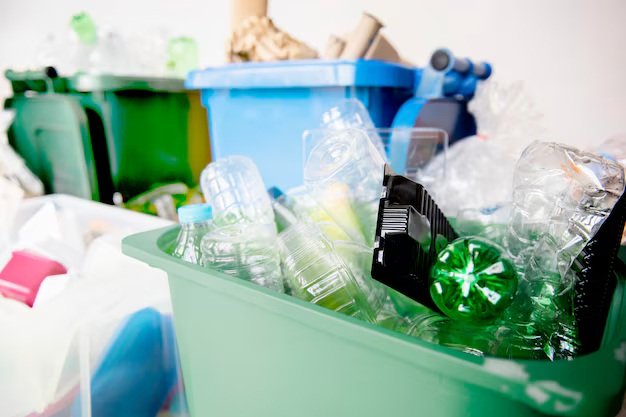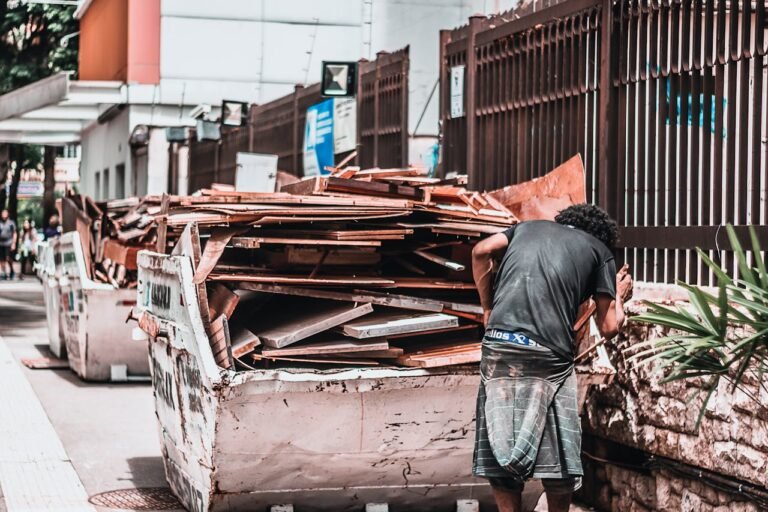How to Dispose of Candles Properly: Expert Tips for Sustainable Candle Lovers
If you’re anything like me, you love the soft glow and comforting aroma of candles in your space. Whether it’s the quiet flicker of a small votive at bedtime or a scented candle filling your home with the essence of a summer garden, candles create an ambience that’s hard to beat. Over the years, I’ve found myself surrounded by candles of all shapes and scents. But after the last flame burns out, what happens to all those jars, wicks, and leftover wax? I realised I had no real plan in place for disposing of them properly, which sent me down a path of discovery about how to handle candle waste in an eco-friendly, responsible way.
In this guide, I’ll share everything I’ve learned along the way, plus insights from experts, research on candle waste and pollution, and tips on reusing and recycling candle components. Whether you’re a candle enthusiast or simply looking for ways to reduce your household waste, these strategies can help you enjoy your candles without adding to landfills or harming the environment.

In This Article
- Understanding the Environmental Impact of Candle Disposal
- Step-by-Step Guide: How to Dispose of and Recycle Candles Properly
- Repurposing Candle Jars: Simple and Creative Ideas
- Eco-Friendly Candle Alternatives: Choosing Better Options for the Environment
- Conclusion
Understanding the Environmental Impact of Candle Disposal
Before we jump into disposal methods, it’s helpful to know a bit more about what makes candle disposal important for the environment. Candles are made from different types of wax, which can have varying environmental effects. Here’s what I found when I dug a little deeper into the science.
The Ingredients in Candles: What Matters?
- Paraffin Wax
This is the most common type of wax used in candles, largely because it’s affordable and easy to produce. Paraffin wax is derived from petroleum, a fossil fuel, and emits volatile organic compounds (VOCs) when burned. VOCs can impact indoor air quality, contributing to headaches and respiratory irritation, especially for those sensitive to air pollutants. The National Institute of Environmental Health Sciences points out that VOCs also contribute to smog and air pollution, particularly in urban areas. - Soy, Beeswax, and Coconut Wax
Soy, beeswax, and coconut wax candles are more eco-friendly alternatives. While they can be a bit more expensive, these waxes are renewable and biodegradable. For example, beeswax, an age-old choice, has been used for centuries in ceremonial and religious settings because of its clean, long-lasting burn. However, even natural waxes can become problematic if they end up in a landfill, where they may not decompose efficiently.
My Experience: When I learned about the difference in environmental impact between paraffin and natural waxes, I started exploring soy candles. Switching made a difference, not only in air quality but in how I felt about using candles frequently. I found that soy wax didn’t leave the same smoky residue on my walls or give me the mild headaches I used to experience with paraffin-based candles.
Learn More: Recycling Bin Colours and Their Meanings
What Happens to Candle Wax in a Landfill?
Candle waxes, particularly paraffin, are not biodegradable. If thrown away, they can sit in landfills for years. As they break down, they may also release harmful chemicals into the soil and groundwater, posing a threat to the local ecosystem. This realisation was a wake-up call for me, making me more mindful of the candles I choose and how I dispose of them.
Step-by-Step Guide: How to Dispose of and Recycle Candles Properly
Once I decided to commit to sustainable candle use, I researched the best ways to handle each part of a used candle. I’ve broken down my process here to help make your own disposal journey as smooth as possible.
Step 1: Extinguish and Allow the Wax to Cool
Before disposal, make sure your candle has fully cooled. This step may seem simple, but when I started, I often found myself impatient, wanting to dispose of or clean the jar immediately after use. Letting the wax cool and harden avoids spills and keeps the wax in one place. Plus, waiting for the wax to cool before disposal reduces the risk of accidents.
Step 2: Removing Leftover Wax from Candle Jars
Removing wax is the trickiest part of candle disposal. However, I discovered several methods that make it much easier to clean jars and prepare them for recycling or repurposing.
- The Freezer Method
This is one of the simplest and safest ways to remove leftover wax.- Step 1: Place your candle jar in the freezer overnight. Freezing the wax causes it to contract, which makes it easier to remove.
- Step 2: Once the wax is frozen, use a butter knife or spoon to gently pry the wax out. It usually pops out in one piece.
- The Boiling Water Method
If the freezer method doesn’t work, the boiling water method is a good alternative.- Step 1: Boil some water and pour it into the candle jar until it covers the wax layer.
- Step 2: The hot water will cause the wax to melt and rise to the surface. Once it cools, the wax hardens and can be easily removed.
- Pro tip: Don’t pour melted wax down the sink. This can cause clogs in your plumbing, as I learned the hard way when I accidentally clogged my kitchen sink with candle wax! Instead, pour the wax into a disposable container if needed.
- The Double-Boiler Method (Bain-Marie)
If you have a large amount of wax, this method is effective.- Step 1: Set a pot of water to boil, then place the candle jar in a heat-safe bowl above the pot, creating a double-boiler effect.
- Step 2: As the wax softens, pour it out into a disposable container for disposal or reuse.
Step 3: Responsibly Dispose of or Reuse the Leftover Wax
After you’ve successfully removed the wax, you have two choices: dispose of the wax properly or repurpose it.
- Recycling Wax
Some recycling centres accept candle wax, though this can vary by location. If you want to recycle it, check with your local waste facility or use resources like Earth911 to find facilities that accept wax. - Repurposing Wax for New Candles or Wax Melts
One of the most satisfying ways I’ve found to reuse leftover candle wax is to create new candles or wax melts.- Step 1: Collect leftover wax from various candles until you have enough to create a new candle.
- Step 2: Melt the wax using the double-boiler method, then pour it into a mould or jar with a new wick.
- For wax melts, simply pour melted wax into silicone moulds, which can then be used in a wax warmer. This DIY process allows you to create custom scents by blending different waxes, and it’s an easy way to reduce waste.
My Experience: One year, I ended up making holiday gifts for friends out of my leftover wax. Not only did this repurposing project keep wax out of the landfill, but it also made for thoughtful and unique gifts.
Step 4: Recycling Candle Jars
Most candle jars, particularly those made from glass, can be recycled. However, there are some steps you need to take to prepare them for the recycling bin.
- Remove Labels and Wicks
- Soak the jar in warm, soapy water to soften any labels and use a butter knife to scrape off adhesive residue.
- Carefully remove the metal wick holder from the bottom of the jar. These metal pieces can usually be recycled separately with other metals.
- Rinse and Dry
- Wash the jar thoroughly to remove any remaining soot or wax residue. Once clean, the jar can either be recycled or repurposed.
Repurposing Candle Jars: Simple and Creative Ideas
If you’re like me, you might find it hard to part with a well-designed candle jar. Luckily, these containers can be reused in several creative ways.
- Mini Plant Pots
Candle jars make excellent planters for small plants. I now have a small collection of succulents and cacti in old candle jars on my windowsill. Just add a few small rocks at the bottom for drainage, and you’re ready to plant. - Storage Containers
Use your jars to store bathroom essentials like cotton balls or Q-tips, or keep spices organised in the kitchen. I even repurpose jars for office supplies, keeping my pens, paper clips, and other desk essentials within easy reach. - Decorative Storage
With a little creativity, candle jars can become unique pieces of decor. After removing the label, I sometimes paint or decorate the jar’s exterior and use it as a decorative container or holder.
Learn More: How to Responsibly Dispose of Bubble Wrap: Expert Tips and Eco-Friendly Alternatives
Eco-Friendly Candle Alternatives: Choosing Better Options for the Environment
The more I learned about the environmental effects of candle waste, the more I began to explore alternatives that wouldn’t compromise my love for candles but would have less of an impact on the planet.
- Soy, Beeswax, or Coconut Wax Candles
Opt for soy, beeswax, or coconut wax over paraffin. These natural waxes burn cleaner and produce fewer pollutants. - Unscented or Naturally Scented Candles
Choose candles with natural essential oils rather than synthetic fragrances. Synthetic fragrances can release additional chemicals into the air, which may contribute to indoor air pollution. - Wick Choice Matters
Look for cotton or wooden wicks rather than wicks with a metal core, which can release harmful particles into the air when burned. Many artisanal candle brands now prioritise lead-free, non-toxic wicks as a standard.
Conclusion
By responsibly disposing of candles, reusing materials, and choosing eco-friendly options, we can all enjoy the warmth and light candles provide without contributing to pollution or landfill waste. It’s amazing how a small shift in mindset can create a ripple effect. One candle at a time, we can make a big difference in reducing our environmental footprint.
I hope this guide helps you to enjoy your candles sustainably, just as it’s helped me over the years. Together, we can make eco-friendly choices that benefit both our homes and the world we share.







